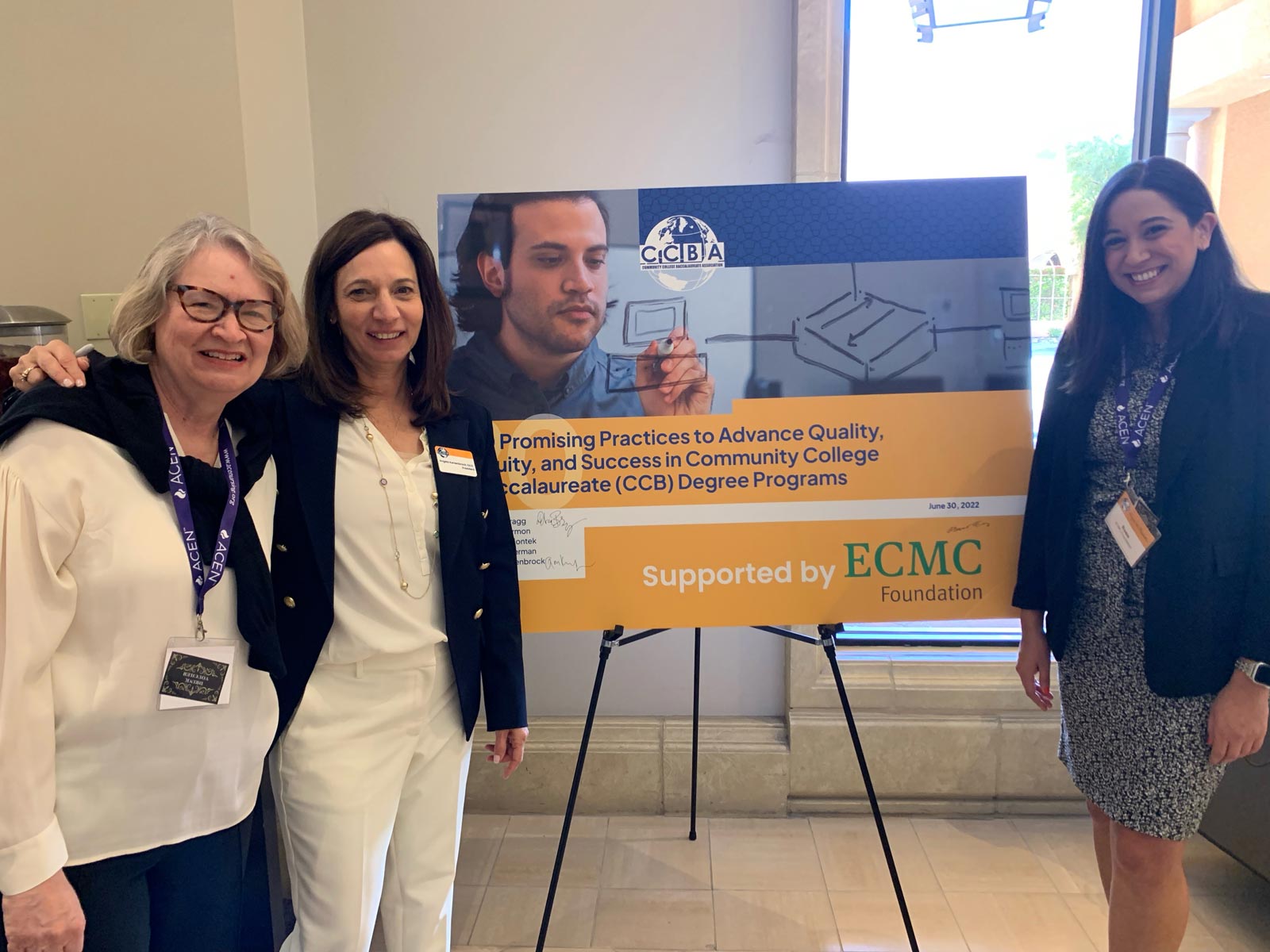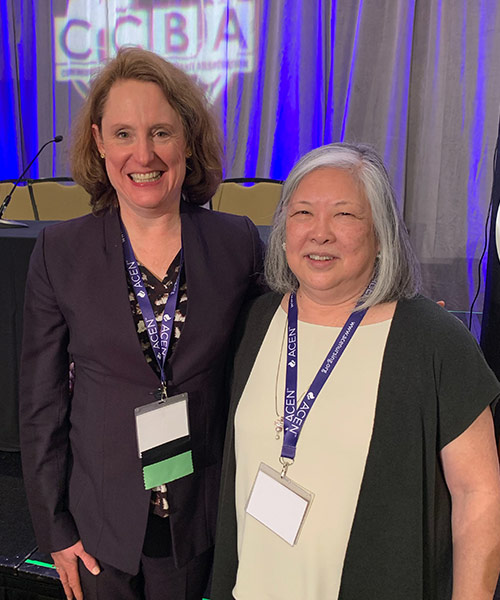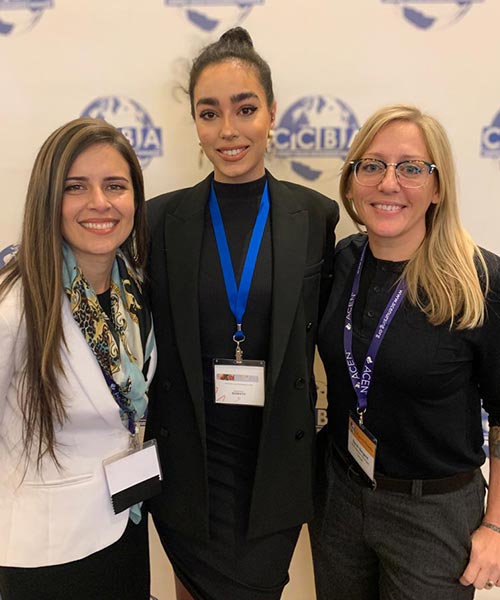CCBA Celebrates Record Growth During 2023 National Conference
Announces $550,000 in Grant Awards
As community colleges continue to earn national recognition for delivering accessible, affordable, family-sustaining career pathways, the Community College Baccalaureate Association (CCBA) convened more than 300 higher education leaders from across the nation to Imagine the Possibilities during its 2023 national conference.
During the record-attendance event, Rosario Torres, program officer with ECMC Foundation announced the CCBA has been awarded a $500,000 grant to further its work with Bragg & Associates to scale up community college baccalaureate (CCB) degrees – currently available in 25 states – across the country.

L to R Dr. Debra Bragg, President of Bragg & Associates, CCBA President Dr. Angela Kersenbrock & Rosario Torres, program officer with ECMC Foundation
Additionally, Ascendium Education Group Senior Program Officers Sue Cui and Carolynn Lee announced a $50,000 gift to support the CCBA’s work to research a national, standardized “quality framework” that will become a template design for future community college baccalaureate programs.
“CCBA is the only organization in the nation dedicated to promoting bachelor’s degrees conferred by community colleges as a means of increasing baccalaureate attainment while closing racial, ethnic, and income gaps,” says CCBA President Dr. Angela Kersenbrock. “With Ascendium’s funding and ECMC’s second year of generous support, we will continue to explore promising practices as we advance the CCB movement to expand access to affordable community college baccalaureate degrees.”
The 2023 CCBA Conference, which took place at the Westin Rancho Mirage in Palm Springs, CA, also featured annual highlights including:
- Recognition of the 2023 Pioneer Award honoree, Dr. Jan Yoshiwara, former executive director for the Washington State Board for Community and Technical Colleges. The award is presented annually to an individual who has bravely and tenaciously served as a leader in improving access for community college graduates into baccalaureate programs.
- Presentation of the 2023 Student Scholarship Awards. The $1000 scholarships are funded by the CCBA Board of Directors and honor academic excellence in those seeking a community college baccalaureate degree. Three students were awarded scholarships this year:Olga Navarro from South Texas College, Niloufar Massrour from MiraCosta College and Sarah Sergent from Northwestern Michigan College.

Dr. Joyce Hammer, Vice President Instruction, Centralia College & 2023 Pioneer Award Honoree Jan Yoshiwara

2023 CCBA Student Scholars Olga, Niloufar & Sarah
“We are proud to recognize the achievements of these outstanding community college baccalaureate scholars. The baccalaureate programs these women have had the opportunity to enjoy are a direct result of the work the CCBA and its members have invested into the nation’s higher education system over the past 22 years,” Kersenbrock says. “They, along with thousands of others, may not have had access to advanced degrees if not for the efforts of their local community college. The CCBA and its members look forward to continuing to re-define higher education to benefit the next generation of degree-seeking adult working learners.”
